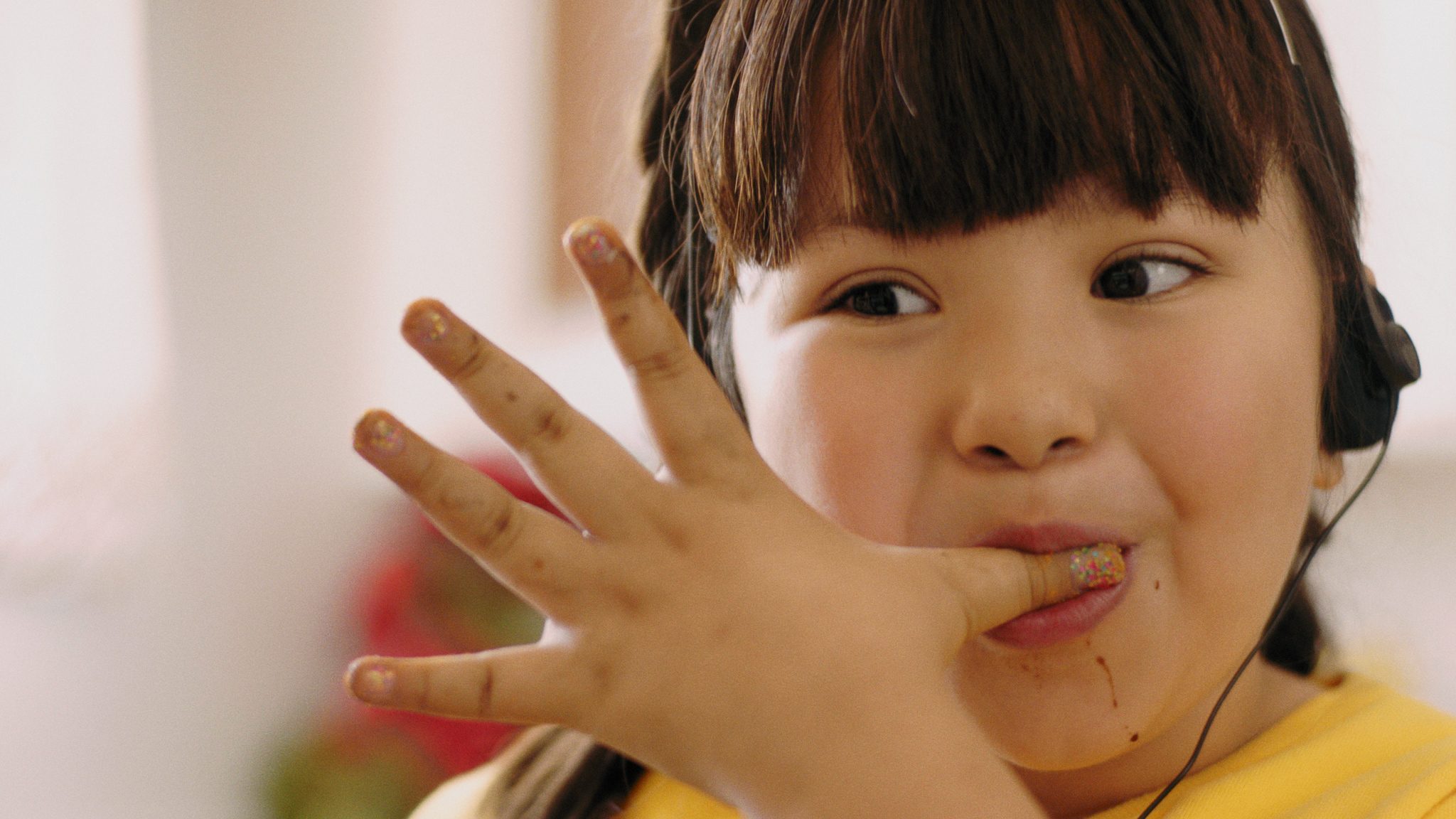Born in Moscow, while her Cuban parents were studying communism in Russia, spoken word poet and filmmaker Gabriela Garcia Medina has always felt she is from “everywhere and from nowhere.” Yet, throughout her globe-trotting life — from Cuba to Europe and to the United States — her identity as a Latina has always been a guiding light for her work.
Following a successful chapter touring campuses with her poetry, for which she became the bestselling spoken word poet in the U.S. college market at her peak, Garcia Medina turned back to her love for narrative storytelling. She developed the semi-autobiographical Little Con Lili, which was first a young adult novel featuring short stories. Taking place in the ‘90s, Little Con Lili is about a Cuban-American girl growing up in a working class family.
Lili’s mischievous adventures were then adapted into a feature screenplay, but in order to secure financing, Garcia Medina was encouraged to create a short film version that could serve as proof of concept. The resulting production had its West Coast premiere at the Los Angeles Latino International Film Fest (LALIFF) where it won over hearts thanks to young actress Ava Davila’s performance. Davila plays an astute preteen who loves ‘70s rock band Air Supply, snacking on pop tarts and cheese puffs, and playfully deceiving her mother Norma (Cheryl Umana).
In the writer-director’s eyes, Lili is not a unique girl in that she hopes everyone can relate to her — but at the same time, what makes her singularly Latinx is a passionate rawness for everything she does. One could say she is a Cuban-American Matilda. On screen, Garcia Medina visually juxtaposes Lili’s magical world with her mother’s gloomy reality by bathing the former in yellow warm light and using gray and blue tones for the latter.
For Garcia Medina, using comedy allows her to create characters and situations that transcend stereotypes. “It’s important for Latinos to write struggles stories and immigration stories, but I don’t think that’s all we should be doing,” she said. “We should be doing happy stories because we are more than our struggle.” Humor, she believes, can also serve as a powerful statement of who we are as people.
This fondness for the funny side of things, even in the most unfortunate of situations, comes naturally to her. “A great thing about Cuban film, which is in my blood and in my DNA, is that there is always comedy in their dramas,” she explained. Garcia Medina cites Las doce sillas by Tomás Gutiérrez Alea and Se permuta by Juan Carlos Tabío as examples of directors who used their work to poke fun at the precarious conditions on the island with biting insight.

Scarcity of resources is something that she is familiar with, “We grew up poor, and my mom would do things that were slightly embarrassing just to make ends meet.” Garcia Medina recalls her mother changing the price on items at the supermarket so that they could afford to buy protein or gathering strangers outside a theme park to qualify for a group discounted rate. “Looking back as an adult I realize she was just trying to give me the best childhood possible,” she added. This upbringing is reflected in both the specifics of her stories and the stylistic choices she makes.
Her ability to make something look impressive without spending much cash can be appreciated in Little Con Lili‘s final credits. Using a DIY style, the director chose to write the names and titles of her crew on household items like a VHS tape, a vinyl record, the price tag on a can of enchilada sauce, a Snickers wrapper, coupons, and pop tarts. Rather than dwelling on the pain that growing up poor may have caused, she now uses her childhood memories to feed her imagination and make movies that entertain and carry a positive and empowering message.
Over the years, Garcia Medina’s work has evolved from being politically charged in an overt way, into more uplifting content that can change the perception we have of ourselves. “We can all be angry together, or I can make my community feel really good about who they are, really proud to be Latino. That’s my goal.”







